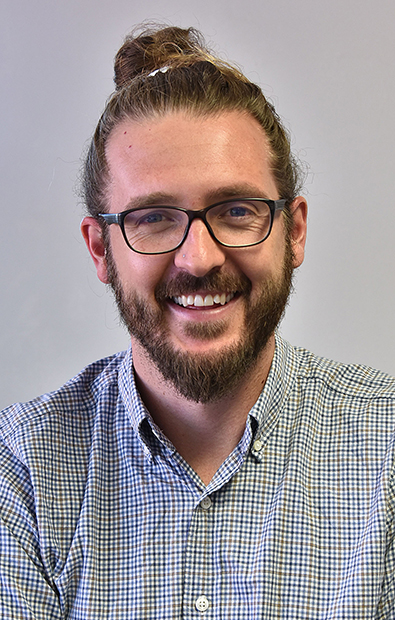Latest News Archive
Please select Category, Year, and then Month to display items
17 June 2020
|
Story Dr WP Wahl

The Division of Student Affairs (DSA) prioritises innovation to meet the challenges of food insecurity and malnutrition among students. To this end, several student volunteers and student governance structures are collaborating with the DSA on various initiatives.
During 2019, various conversations were held about the possibility of creating a health-promoting food environment at the UFS where students and staff are well informed and empowered to take appropriate action regarding their food and nutritional needs. These conversations resulted in an institutional strategy to address the food environment at the UFS. Student representatives serve on a technical committee that directs the implementation of this strategy. In this regard, several initiatives have already been launched.
Students from residences and other student communities have planted vegetable gardens on the Bloemfontein Campus with the assistance of KovsieACT and the Faculty of Natural and Agricultural Sciences. Students and staff are already harvesting and distributing vegetables to needy students every week. Measurements were put in place to continue this during the COVID-19 period. The following vegetables were planted: spinach, cabbage, beetroot, broccoli, cauliflower, and carrots.
Food parcels, donated by Tiger Brands and Gift of the Givers, are continuously handed out by DSA staff and student volunteers. In this regard, 540 food parcels have already been handed out on the Bloemfontein Campus during the COVID-19 period alone. During the same time, 117 students received food parcels on the Qwaqwa Campus. The innovation of this food parcel project rests on the fact that business, NPOs, UFS students, and DSA staff are collaborating to address food insecurity and malnutrition.
More collaborative initiatives will be implemented over the next 12 months. The DSA staff and students are already working with the Department of Dietetics and Consumer Sciences to create information packages about the preparation of low-budget nutritious meals.
Related article:
Vegetable tunnels established to continue the fight against food insecurity
Newton Fellow at UFS focuses on land and labour
2017-10-28

Dr Rory Pilossof
Photo: Charl Devenish
Dr Rory Pilossof is a senior lecturer in economics at the University of the Free State (UFS), a Postdoctoral Fellow at the International Studies Group at UFS, and a Research Fellow at the University of Kent in the UK.
He became interested in his research field when he studied land reform and land issues in Zimbabwe for his PhD at the University of Sheffield. From there, his research interests have expanded to look at other issues connected to land, such as whiteness and labour.
Dr Pilossof's study field links up with the important issue of land reform in Southern Africa due to its past colonialism and post-colonial politics of land and land ownership. These intersect with a wide range of labour issues that are pressing in the region. He has a keen interest in elite transitions and changes in economic structure in Southern Africa since the 1960s.
Dr Pilossof was nominated to the South African Young Academy of Science in 2017, and received an NRF Y1 rating during 2017. He is also a member of the Amsterdam-based International Institute for Social History’s ‘Global Collaboratory on the History of Labour Relations’. He is a participant in the Leverhulme Trust-funded initiative ‘Comparative History of Political Engagement in Western and African Societies Programme’ at the University of Sheffield.
Dr Pilossof's primary research focuses on issues of land, labour and changing social and economic structures in Zimbabwe and South Africa. He is also interested in finding alternative ways of looking at change. To this end, he has studied various newspapers and periodicals in the region.
Currently, he spends most of his research time as part of a three-year British Academy-funded Advanced Newton Fellowship into labour relations and occupational structures. In future, he wants to expand his research in the labour field by looking at labour and migration in the region over the course of the 20th century.